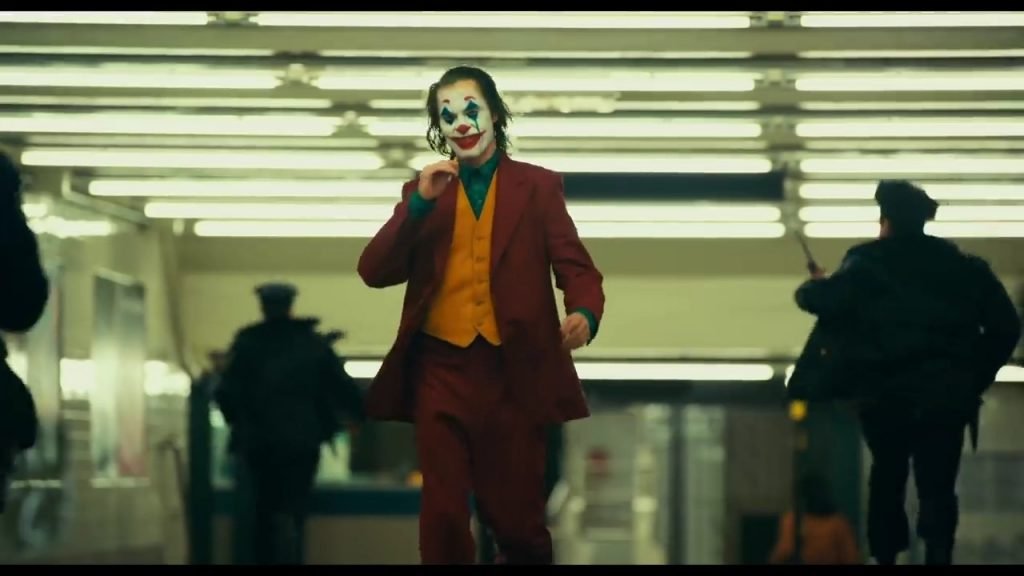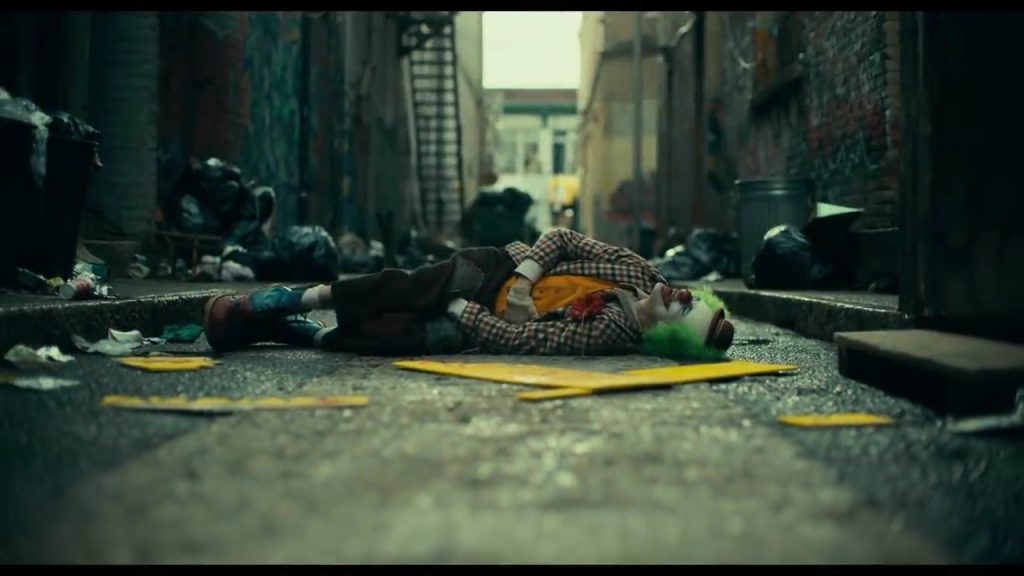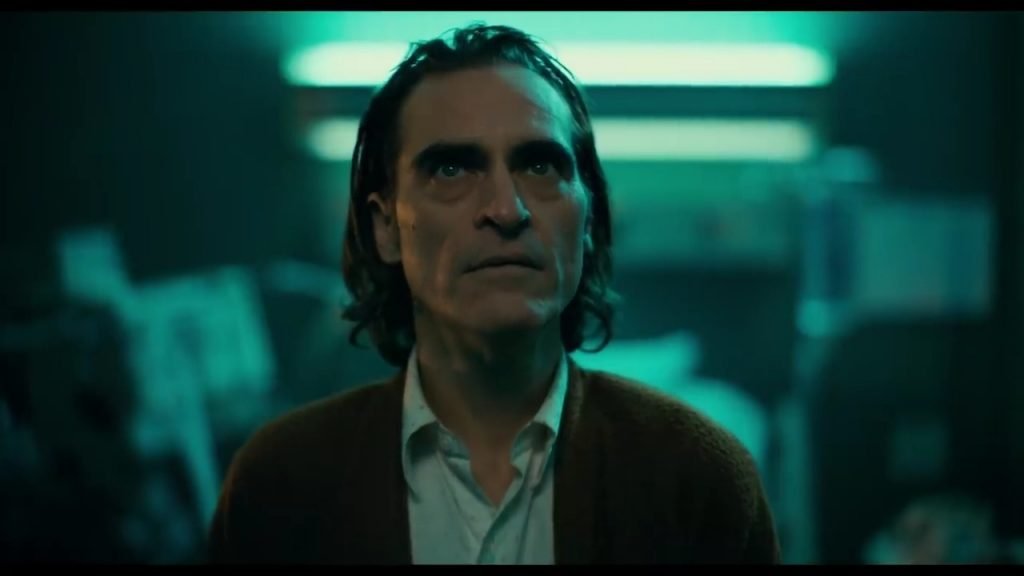This site contains affiliate links to products. We may receive a commission for purchases made through these links.
Joker is the highly anticipated standalone drama starring Joaquin Phoenix and directed by Todd Phillips, which tells the origin story of Batman’s most iconic villain. Told from a gritty and grounded perspective, Joker gives the audience a front-row seat to the slow mental degradation of Arthur Fleck (Joaquin Phoenix), a middle-aged man living in Gotham City. Shacked up at home with his single elderly mother and working as a clown, Fleck struggles with a slew of mental issues. As the world around him becomes more and more hostile, the humanity of Arthur begins to disappear and the murderous persona of the Joker emerges. There’s been a huge wave of hype and controversy surrounding Joker, but is any of it warranted? Apart from expected real-world societal discourse around the movie’s depiction (some would argue celebration) of violence, does Joker give the audience a reason to talk?
Note: This review contains no major spoilers for Joker.
The Mind of Arthur Fleck
Right from the start of Joker, which includes a title card that matches its 1970s time period, it’s apparent that this film is not your average comic-book movie. Although there are a handful of climactic action scenes, the majority of the movie is a slow-burn character study. The story follows the day-to-day life of Arthur Fleck, including discussions with his therapist and his life as a clown-for-hire.
Arthur’s days are full of misery and depression, as he struggles to care for his aging mother and deal with a slew of mental problems. One of those disorders is uncontrollable laughter, causing him to cackle during emotional and inappropriate moments. The laughs seem physically hurt him, showing us that Fleck cannot enjoy even a simple chuckle without experiencing pain.
Throughout the film, Fleck cannot seem to escape the swallowing slums of Gotham. No matter how hard he tries, the world kicks him down time and time again. He’s assaulted at work, laughed at and mocked, and generally disregarded by the rest of the city. With nowhere to turn, Fleck starts to embrace the overwhelmingly negative feelings that occupy his mind. His apathy turns violent, birthing the heartless and iconic villain we’ve seen in so many Batman stories before.
The Dirty World of Gotham
Joker is often a tense and unsettling experience, and that’s mostly due to the absolutely stellar yet haunting performance from Joaquin Phoenix. The depressing nature of the story also bleeds into the cinematography and set design, offering a bleak but beautiful viewing experience.

The movie goes to decent lengths to show you just how grimy and unruly Gotham is, with mud puddles on every city street and graffiti on every subway wall. Every day seems cloudier and wetter than the last, the sun choked out by an ever-present gloom hanging over Gotham. Joker is a decently slow-paced movie as well, giving you have plenty of time to stew in the filth with Arthur and company.

While the cinematography and score are top-notch, Joker unfortunately falters with its pacing. The first hour or so of the movie is very compelling, but things tend to sag after a while. There are few sub-plots that distract from the otherwise focused narrative, but they lay deep within spoiler territory. Generally speaking, Joker tries to branch out in a few ways, attempting to provide both fan-service and some interesting twists. These distractions can still be entertaining, but they are just that; distractions to the more interesting themes of Arthur Fleck’s descent into madness.
How Violent is Joker?
It seems impossible to cover this movie without discussing its realistic depictions of violence; ones that have sprouted some controversy and concern. Like other films with unsettling violence, many might think that Joker could incite real-world violence or copycat crimes. While I understand why some could be concerned, this is a silly debate that springs up time and time again.

It’s a baseless argument, and simply a reflection of the paranoia caused by the violent and horrific crimes that continue to plague our world. To that point though, the violence in Joker, while disturbing, isn’t exactly gratuitous or painted in a glorified light.
A lot of PG-13 action films have higher body counts than Joker does, but that kind of violence is often exaggerated and played for entertainment. In Joker, violence has honest and realistic consequences. When people get shot, they die. Characters don’t have highly emotional death scenes with a roaring orchestral soundtrack, they’re just dead. The violence in Joker is disturbing to watch because it feels grounded and real, not because it’s gory and blood-soaked.
Should You Watch Joker?
When it comes to Joker, there are a lot of reasons you might be interested in seeing it. If you’re a fan of the Joker character or are interested in an unsettling and slow-burn drama, you’ll probably find Joker to be a worthwhile watch. If you are expecting an explosion-filled action movie, you’re going to be sorely disappointed. If you’re worried about excessive gore or horrifying violence, you’ll also be a bit underwhelmed.
Overall, Joker is an often depressing but moving drama that encourages audiences to think, rather than get lost in their bowl of popcorn. It’s well shot, delivers authentic emotion to the audience, and contains one of Joaquin Phoenix’s best performances in his entire career. The narrative also holds some important and effective themes, although they’re occasionally muddied by underwhelming story distractions. That said, Joker does a great service to the medium of comic books by delivering a realistic and poignant portrayal of one of its most iconic villains. It’s not exactly a “fun” watch, but Joker mostly lives up to the hype and cements Joaquin Phoenix as one of the best Jokers in the Batman film franchise.
Rating: 4/5 Stars
Fan of the Joker? Grab some of the best Joker comics, games, and merch by using the links above! (Paid links)






